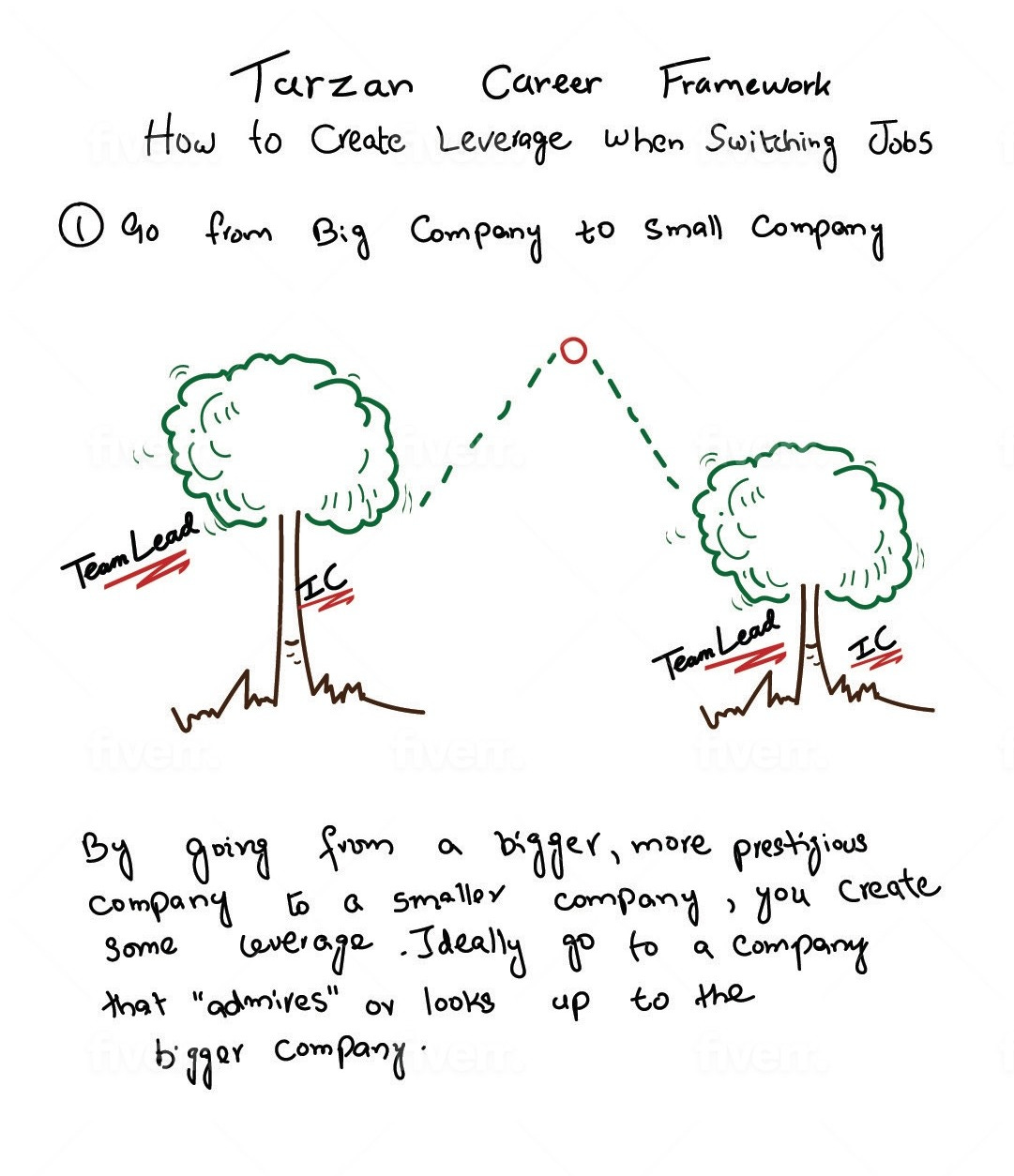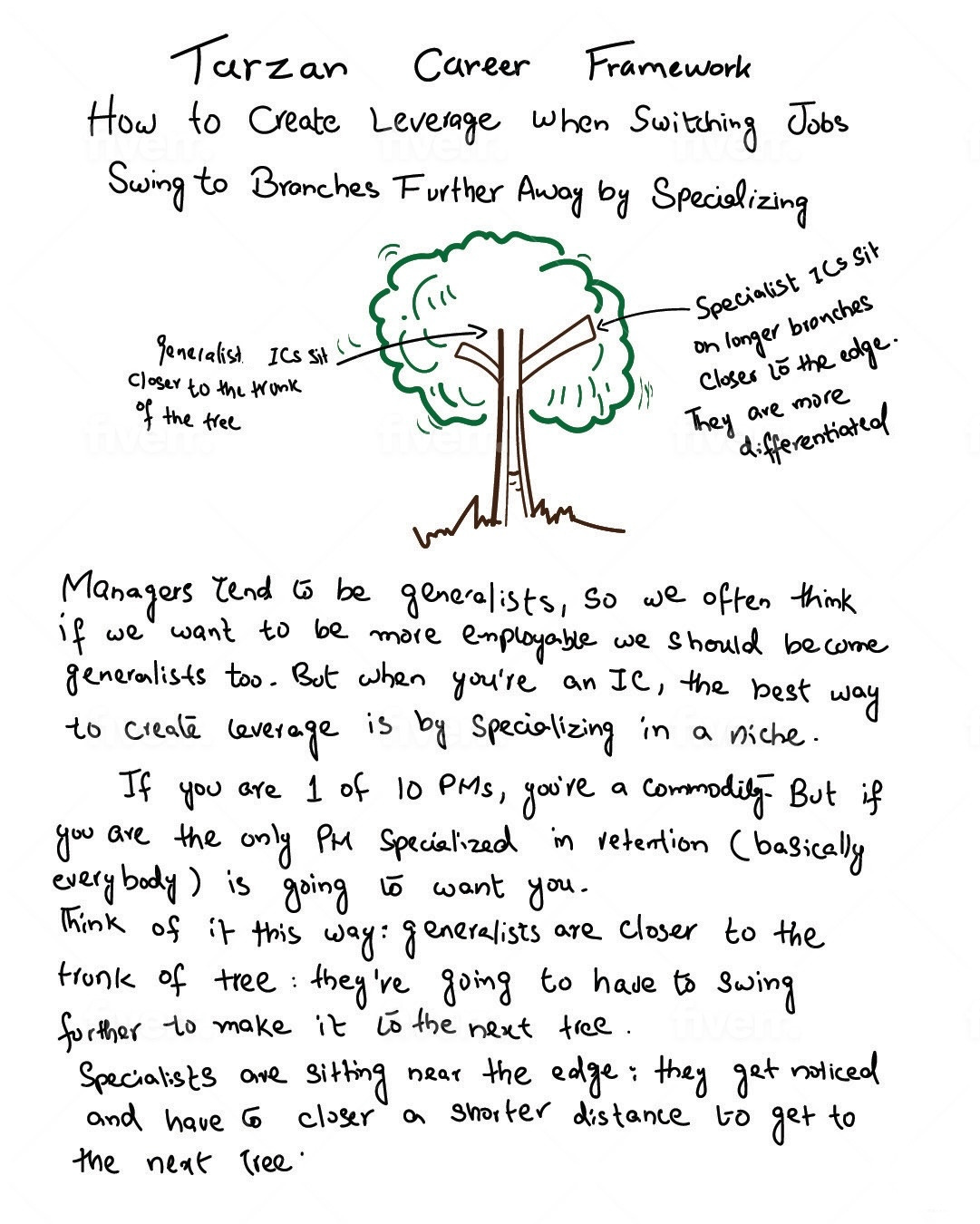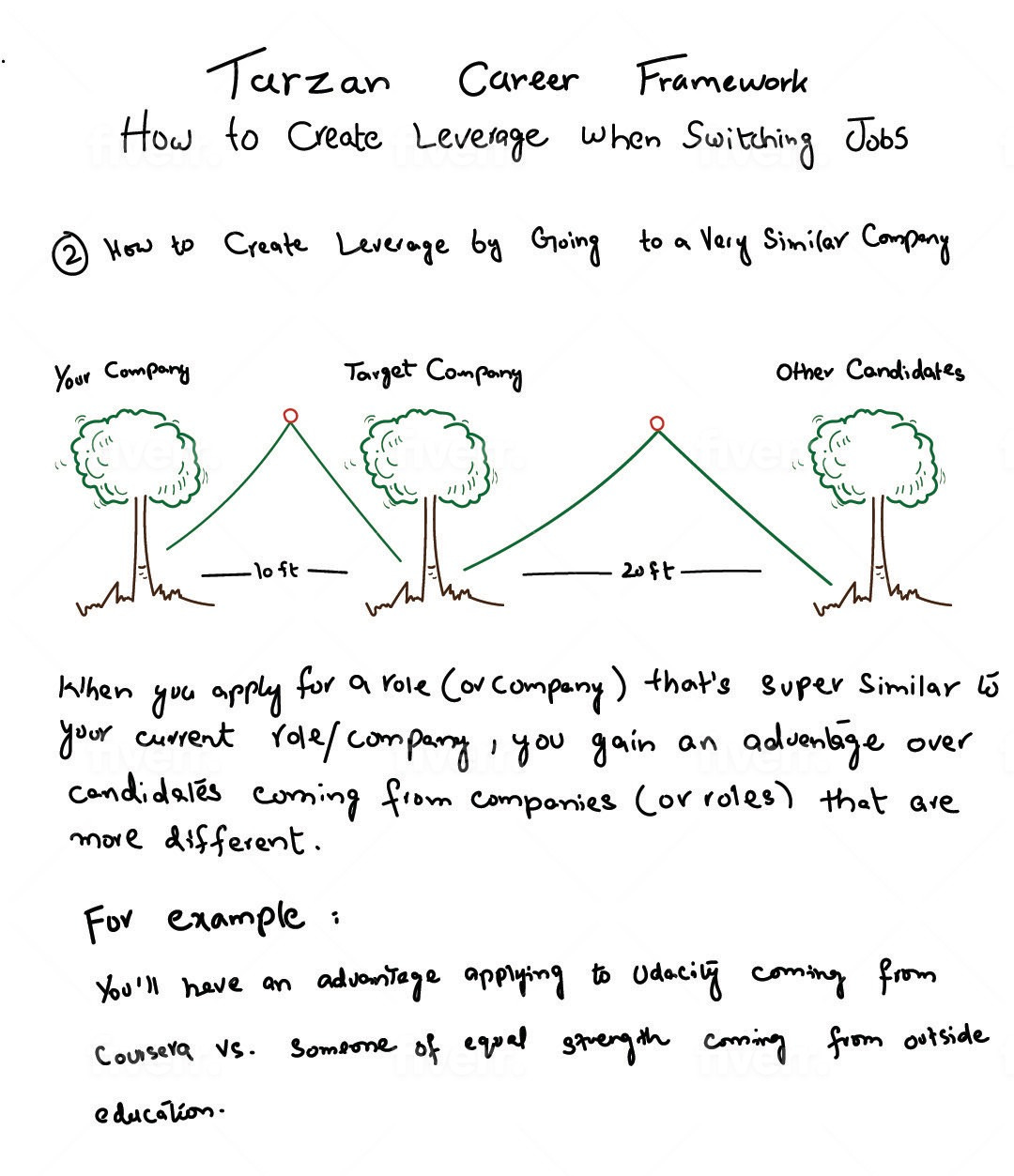The Tarzan Career Framework: How to Swing into Hard-to-Get Jobs
Learn to create leverage so you can swing the most in-demand opportunities.
The first 10 years of my career I was unemployed A LOT. The second 10 years, I’ve done a ton of career mentoring for others. Here’s a framework I invented to help you land hard-to-get jobs. I call it the Tarzan Career Framework:
Think of switching jobs like you’re Tarzan swinging on vines from tree to tree. The more leverage you have, the easier it is to swing to hard-to-reach trees (hard-to-reach jobs).
But how do you create that leverage? Here are three key strategies to help you build momentum and land high-value opportunities.
1. Swing Down to Swing Up: To Get Promoted, Target Companies That Admire Your Current Employer
When you’re looking to make get promoted (perhaps from IC to Team Lead), think about the relative height of the trees you’re swinging between. In this framework, a Team Lead is technically a “higher branch,” but if the next tree is much smaller, you might still have enough leverage to make it.
Target companies that admire your current employer. They’ll naturally view you as bringing valuable experience and insight and put a premium on you relative to someone with the same experience coming from elsewhere.
2. Branch Out Strategically: Specialize to Stand Out
As employees we often focus in growing vertically, which can be tough. Instead, think about how you can grow “out” toward the edges of the tree, by specializing. It’s sometimes easier to climb out on a limb than climb up higher. Specialization creates leverage by distinguishing you from the competition.
Example: Let’s say you decide to specialize in Activation/Onboarding. There might be 10,000 great PMs on the market. But only a handful will position themselves as having that specialization. If I’m a hiring manager considering a PLG go-to-market motion, or I have a PLG motion that’s not firing on all cylinders, you’ve not shot to the top of my list.
Gary Vaynerchuck started as “the wine guy.” Nobody even remember that early positioning anymore. But that early positioning allowed him to stand-out, build a reputation, and then he broadened it from there.
Specializing helps you shorten the distance you need to swing. When you’re known for a skill, you bring a distinct advantage to companies with that pain point.
3. Swing the Shortest Distance: Target Similar Companies and Roles
Whenever possible, optimizing for swinging the shortest distance will give you the most leverage. Target companies or roles that are super-similar, and underscore those similarities in the interview process. In the mind of the hiring manager you’re bringing your current tree closer.
Imagine that you’re applying for a highly-sought-after job at Google. There’ll always be someone smarter, who went to a better college, or worked at a fancier company.
Now let’s say it’s a role on the Google Play Store, covering the EU. And let’s say that you’ve worked for an EU-based company once before, and you’ve worked on mobile app analytics at a BI company. But by underscoring those similarities, you can sitll position yourself as the “best fit.”
During the interview process, ask open-ended questions about the pain points the team is experiencing. Then talk about how you’ve solved similar problems, and connect it back to those two previous roles. You’ve now de-risked your candidacy: of all the candidates, you’re the one most likely to hit the ground running and add value on day 0.
Conclusion
The Tarzan Career Framework is all about creating leverage—using what you already have to reach for the best roles you can swing.
So next time you’re considering a career move, think like Tarzan. Build momentum, create leverage, and swing confidently into the opportunities that await you.







